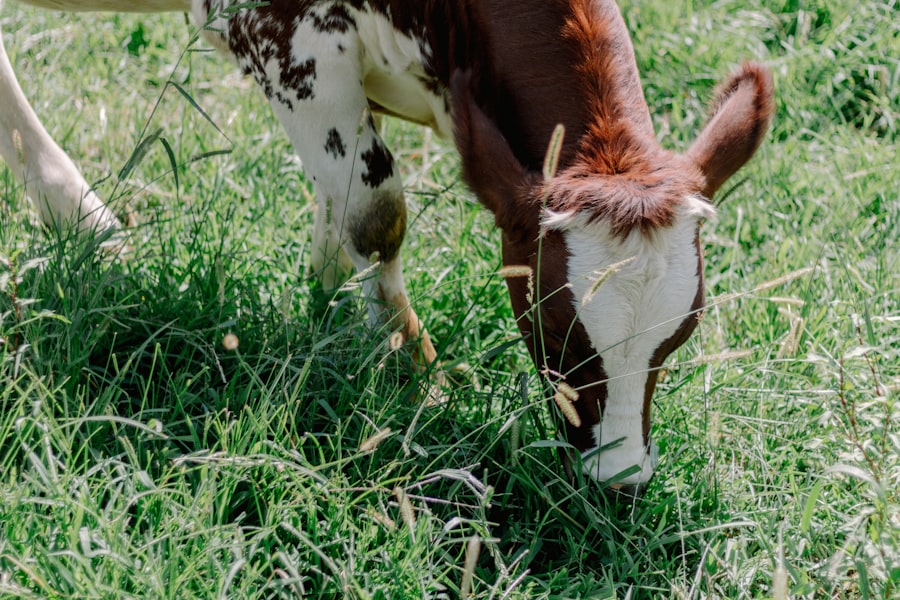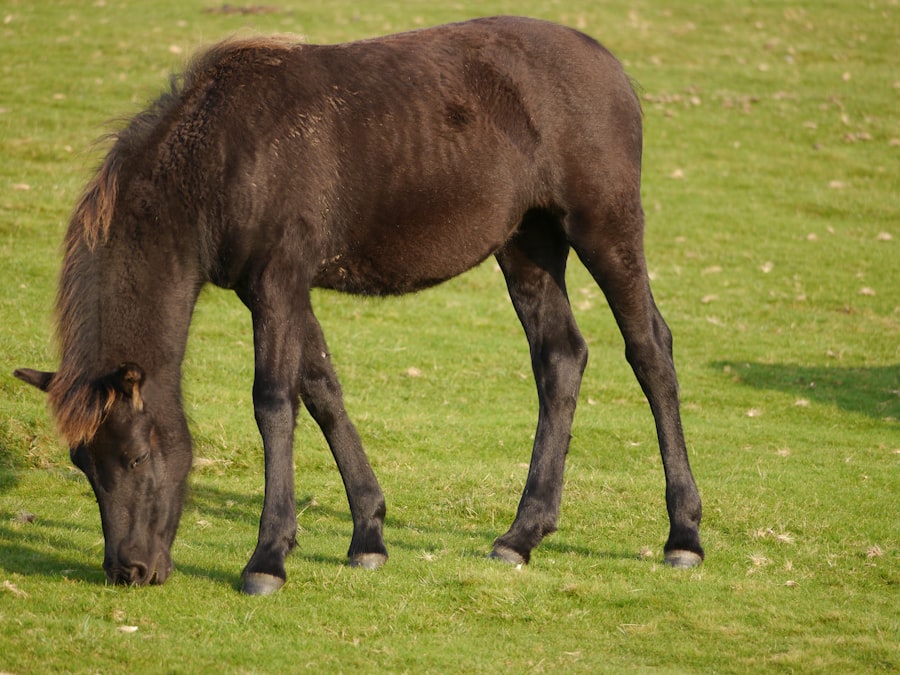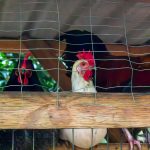Land tax exemption is a financial incentive offered to property owners who engage in specific agricultural activities on their land. This program aims to promote and support farming practices, including livestock rearing and crop cultivation, by reducing or eliminating property taxes for eligible landowners. One common method of qualifying for land tax exemption is maintaining chickens on the property for agricultural purposes.
Landowners can benefit from reduced tax obligations while simultaneously reaping the advantages of chicken farming by understanding the requirements and benefits associated with this exemption. Keeping chickens for land tax exemption purposes offers multiple benefits to property owners. In addition to potential tax savings, raising chickens can be a rewarding and sustainable agricultural practice.
Chickens provide valuable resources such as fresh eggs and meat, while also offering natural pest control services. Furthermore, the presence of chickens on a property can contribute to a more diverse and resilient ecosystem by fertilizing the soil and managing insect populations. Recognizing the various advantages that chickens bring to a piece of land is crucial for property owners considering participation in the land tax exemption program.
Table of Contents
- 1 Benefits of Keeping Chickens for Land Tax Exemption
- 2 Requirements for Keeping Chickens for Land Tax Exemption
- 3 Setting Up a Chicken Coop for Land Tax Exemption
- 4 Maintaining Proper Records for Land Tax Exemption
- 5 Troubleshooting Common Issues for Land Tax Exemption with Chickens
- 6 Additional Tips for Maximizing Land Tax Exemption with Chickens
- 7 FAQs
- 7.1 What is land tax exemption?
- 7.2 How can chickens help keep land tax exempt?
- 7.3 What are the requirements for keeping land tax exempt with chickens?
- 7.4 Are there any limitations to keeping land tax exempt with chickens?
- 7.5 What are the potential benefits of keeping land tax exempt with chickens?
Key Takeaways
- Land tax exemption may be available for properties with agricultural use, including keeping chickens.
- Keeping chickens can provide benefits such as land tax exemption, fresh eggs, and natural pest control.
- Requirements for keeping chickens for land tax exemption may include a minimum number of chickens and proper housing.
- Setting up a chicken coop for land tax exemption may involve providing adequate space, shelter, and access to food and water.
- Maintaining proper records, such as chicken inventory and egg production, is essential for claiming land tax exemption.
Benefits of Keeping Chickens for Land Tax Exemption
Financial Benefits
One of the most obvious benefits of keeping chickens for land tax exemption is the financial savings that come from reduced or waived property taxes. This can lead to a significant reduction in annual expenses, allowing landowners to allocate resources to other areas of their property or agricultural operations.
Practical Benefits
In addition to the financial benefits, keeping chickens can also provide a valuable source of fresh eggs and meat for the landowner and their family. This can contribute to a more self-sufficient and sustainable lifestyle, as well as provide a potential source of income through the sale of surplus eggs or meat.
Environmental Benefits
Keeping chickens can also have positive environmental impacts on the property. Chickens are natural pest controllers, helping to keep insect populations in check without the need for harmful chemical pesticides. They also contribute to soil health through their scratching and pecking behavior, which helps to aerate and fertilize the soil. Additionally, chicken manure is a valuable source of organic fertilizer, which can be used to improve soil fertility and promote healthy plant growth.
By keeping chickens for land tax exemption, landowners can not only save money on property taxes but also enjoy the many practical and environmental benefits that come with raising these animals.
Requirements for Keeping Chickens for Land Tax Exemption

In order to qualify for land tax exemption through the keeping of chickens, there are certain requirements that landowners must meet. These requirements may vary depending on the specific regulations and guidelines set forth by the local government or tax authority. However, some common requirements for keeping chickens for land tax exemption include maintaining a minimum number of chickens on the property, engaging in agricultural activities related to chicken keeping, and keeping proper records of chicken-related expenses and income.
One common requirement for land tax exemption is the minimum number of chickens that must be kept on the property. This minimum number may vary depending on the size of the property and local regulations, but it is typically designed to ensure that the landowner is engaging in a substantial agricultural activity rather than simply keeping a few chickens as pets. In addition to maintaining a minimum number of chickens, landowners may also be required to demonstrate that they are actively engaged in agricultural activities related to chicken keeping, such as egg production or meat production.
This may involve providing evidence of regular care and maintenance of the chickens, as well as evidence of any income generated from chicken-related activities. Another important requirement for keeping chickens for land tax exemption is the need to keep accurate and detailed records of chicken-related expenses and income. This may include keeping track of expenses such as feed, bedding, veterinary care, and equipment, as well as documenting any income generated from the sale of eggs, meat, or other chicken-related products.
By maintaining thorough records of chicken-related activities, landowners can demonstrate their eligibility for land tax exemption and ensure compliance with any reporting requirements set forth by the local government or tax authority.
Setting Up a Chicken Coop for Land Tax Exemption
Setting up a chicken coop is an essential step in keeping chickens for land tax exemption. A well-designed and properly maintained chicken coop not only provides a comfortable and safe living environment for the chickens but also demonstrates a commitment to responsible animal husbandry, which is often a requirement for qualifying for land tax exemption. When setting up a chicken coop for land tax exemption, there are several key factors to consider, including location, size, design, and maintenance.
The location of the chicken coop is an important consideration when setting up a chicken coop for land tax exemption. The coop should be situated in an area that provides adequate protection from predators, extreme weather conditions, and potential sources of contamination. It should also be located in an area that allows for easy access for feeding, cleaning, and maintenance.
Additionally, the coop should be situated in a way that minimizes any potential negative impacts on neighboring properties or the surrounding environment. The size and design of the chicken coop are also important factors to consider when setting up a chicken coop for land tax exemption. The coop should be spacious enough to accommodate the number of chickens being kept while also providing adequate ventilation, natural light, and protection from the elements.
It should also be designed in a way that allows for easy cleaning and maintenance, with features such as removable roosts, nesting boxes, and access doors. Additionally, the coop should be constructed using durable and non-toxic materials that are safe for both the chickens and the environment.
Maintaining Proper Records for Land Tax Exemption
Maintaining proper records is essential for landowners who are keeping chickens for land tax exemption. Accurate and detailed records not only help to demonstrate compliance with any reporting requirements set forth by the local government or tax authority but also provide valuable information for managing chicken-related activities and expenses. When maintaining proper records for land tax exemption with chickens, there are several key areas to focus on, including expenses, income, inventory, and maintenance.
One important aspect of maintaining proper records for land tax exemption with chickens is keeping track of expenses related to chicken keeping. This may include expenses such as feed, bedding, veterinary care, equipment, and any other costs associated with caring for the chickens. By documenting these expenses in detail, landowners can demonstrate their commitment to responsible animal husbandry and provide evidence of their eligibility for land tax exemption.
In addition to tracking expenses, it is also important to maintain records of any income generated from chicken-related activities. This may include income from the sale of eggs, meat, or other chicken-related products. By documenting this income, landowners can demonstrate that they are actively engaged in agricultural activities related to chicken keeping and provide evidence of their eligibility for land tax exemption.
Troubleshooting Common Issues for Land Tax Exemption with Chickens

Pest Control: A Key Consideration
One common issue that landowners may encounter when keeping chickens for land tax exemption is pest control. Chickens are natural pest controllers and can help to keep insect populations in check without the need for harmful chemical pesticides. However, they may also attract unwanted pests such as rodents or predators.
Securing the Chicken Coop
To address this issue, it is important to take proactive measures to secure the chicken coop against potential threats and minimize opportunities for pests to take hold on the property.
Disease Management: A Critical Aspect
Another common issue that landowners may face when keeping chickens for land tax exemption is disease management. Chickens are susceptible to various diseases and health issues that can impact their well-being and productivity.
Implementing Good Biosecurity Practices
To address this issue, it is important to implement good biosecurity practices, such as regular cleaning and disinfection of the chicken coop, monitoring for signs of illness or disease, and seeking veterinary care when necessary.
Additional Tips for Maximizing Land Tax Exemption with Chickens
In addition to meeting the basic requirements for land tax exemption with chickens, there are several additional tips that can help landowners maximize the benefits of this program. One tip is to diversify chicken-related activities to include multiple sources of income, such as selling eggs, meat, feathers, or other chicken-related products. By diversifying income streams from chicken-related activities, landowners can increase their eligibility for land tax exemption while also maximizing their overall financial return from raising chickens.
Another tip is to invest in sustainable and environmentally friendly practices when keeping chickens for land tax exemption. This may include using organic feed and bedding materials, implementing natural pest control methods, and minimizing waste through composting or recycling chicken manure. By prioritizing sustainability in chicken-related activities, landowners can demonstrate their commitment to responsible agricultural practices while also contributing to a healthier and more resilient ecosystem on their property.
In conclusion, understanding the requirements and benefits of keeping chickens for land tax exemption is essential for landowners who are considering taking advantage of this program. By meeting the requirements for land tax exemption through responsible chicken keeping practices and maintaining proper records of chicken-related activities and expenses, landowners can reduce their annual tax burden while also enjoying the many practical and environmental benefits that come with raising chickens. With careful planning and attention to best practices in chicken husbandry, landowners can maximize the benefits of this program while contributing to a more sustainable and productive use of their property.
If you’re interested in learning more about how to keep land tax exempt with chickens, you may want to check out this article on chicken coop portage. This article provides valuable information on how to properly maintain a chicken coop, which is essential for keeping chickens on your property and potentially qualifying for land tax exemption.
FAQs
What is land tax exemption?
Land tax exemption refers to the exemption of certain properties from paying land tax, which is a tax levied on the value of land. Exemptions are typically granted for properties used for specific purposes, such as agricultural or charitable activities.
How can chickens help keep land tax exempt?
Chickens can help keep land tax exempt by qualifying the property for agricultural use, which is often eligible for land tax exemption. Keeping chickens for the purpose of producing eggs or meat can be considered agricultural activity, thus making the property eligible for exemption.
What are the requirements for keeping land tax exempt with chickens?
The requirements for keeping land tax exempt with chickens vary by location, but generally include maintaining a certain number of chickens, demonstrating that the property is used for agricultural purposes, and complying with any local regulations or zoning laws related to keeping chickens.
Are there any limitations to keeping land tax exempt with chickens?
Limitations to keeping land tax exempt with chickens may include restrictions on the number of chickens allowed, requirements for maintaining the property in a certain condition, and compliance with animal welfare regulations. It’s important to research and understand the specific requirements and limitations in your area.
What are the potential benefits of keeping land tax exempt with chickens?
The potential benefits of keeping land tax exempt with chickens include reduced tax burden on the property, the ability to engage in agricultural activities and produce food for personal use or sale, and the opportunity to enjoy the benefits of raising chickens, such as fresh eggs and natural pest control.
Meet Walter, the feathered-friend fanatic of Florida! Nestled in the sunshine state, Walter struts through life with his feathered companions, clucking his way to happiness. With a coop that’s fancier than a five-star hotel, he’s the Don Juan of the chicken world. When he’s not teaching his hens to do the cha-cha, you’ll find him in a heated debate with his prized rooster, Sir Clucks-a-Lot. Walter’s poultry passion is no yolk; he’s the sunny-side-up guy you never knew you needed in your flock of friends!







